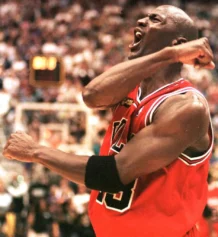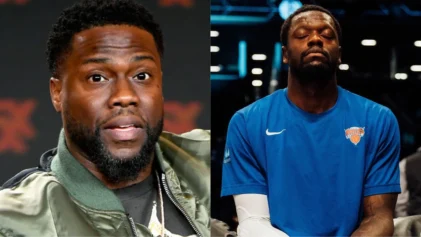
Moreover, Marbury took refuge and found peace and prosperity not in Brooklyn, where he was born and raised, or anywhere else in America, for that matter. It was in China—a world away, a place where many Blacks have felt out of place because of embedded racism—where Marbury tells HBO’s “Real Sports” he pulled himself together.
“I wanted to die,” Marbury says on the show. “I wanted to kill myself some days. I did. . . It wasn’t about basketball. It started to become about me. Because I was that depressed and I was that sick.”
Depression in the Black community and among celebrated people is a more common phenomenon than many understand because Blacks typically do not admit to it, but many are afflicted by it, said Terrie Williams, author of the groundbreaking book on depression in the African-American community: Black Pain: It Just Looks Like We’re Not Hurting. “Depression is a soul crushing disorder. It doesn’t discriminate based upon gender, race, ethnicity or social status. Its broad reach knows no boundaries—those who live with depression, labor beneath the same dark clouds of despair longing for light and relief.”
That was Marbury. To make it worse, he actually began to collapse in front of the world, at his doing. He posted a bizarre online video that showed his emotions all over the place. He yelled. He cried. And when he ate Vaseline, it was official: Something was scarily wrong.
He said he was “basically losing life slowly. And I was watching it. And I think that was hurting me more than seeing my basketball career going in the direction that it was going. I was trapped in my thoughts. I was trapped in how I felt about how I felt I was being treated. I was trapped with decisions that I made.”
The issues were plenty. A trade to his hometown team, the New York Knicks, brought the opposite of what he and many others expected: Drama.
After a brief, unproductive stint with the Boston Celtics, Marbury had no suitors. Worse, as his career descended, so did his biggest business venture: Starbury, a discounted sneaker company designed to give inner-city youths an affordable option to the high-priced Air Jordans and other brands. A noble gesture, but it did not take.
It was the low point for Marbury “when everything went on with the Knicks, and, you know, my father passed on, the [Starbury] brand was (failing).” Depression set in fast.
He found himself playing in the Chinese Basketball Association in 2010, where he has been MVP and led his team to two championships. More than that, he found himself.
He is beloved in China, a celebrity in a country no one would have imagined when he was dubbed the next great New York point guard out of Lincoln High in Brooklyn.
“To be told that you’re a loser, that you can’t win and that you can’t do this and you can’t do that,” Marbury told “Real Sports.” “Then to come some place without speaking the language with the cultural barriers, to be able to accomplish that—that goal was, is beyond anything. … I left one place where they was basically hating me. And I come to another place where they love me? I’m like, ‘Why would I want to go back to a place where they hate me?’ I mean, that makes no sense to me.”
He said he will be in China “forever” because he loves it there. Best of all, he loves himself again.


